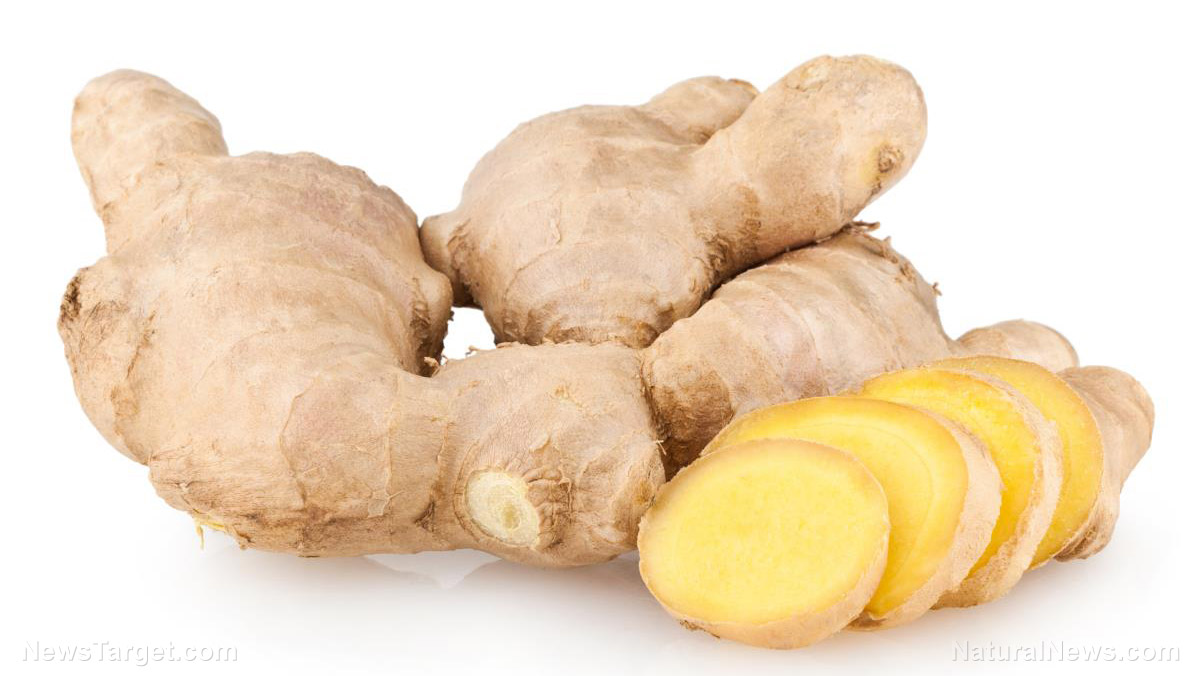Ditch the aspirin! Ginger works just as well … with NONE of the side effects
01/17/2019 / By Mary Miller

A daily dose of one aspirin a day is often prescribed for the prevention of heart disease to those who are at risk. However, just like with other over-the-counter (OTC) drugs, the use of aspirin comes with health risks and unwanted side effects. Some of these risks may include excessive bleeding, kidney and liver failure, ulcers, tinnitus, and hemorrhagic stroke. The good news is that ginger can be used as a suitable alternative to aspirin without the potential adverse effects.
Ginger is already one of the healthiest spices on the planet. It is a nutritional powerhouse of various nutrients and bioactive compounds, which include calcium, copper, dietary fiber, folate, iron, magnesium, protein, zinc, and many others. Its main bioactive compound is gingerol, which has potent anti-inflammatory and antioxidant properties.
With an abundance of health-boosting compounds, the delicious and nutritious spice that is ginger can commonly be found in both recipes and natural remedies. Its healing properties can be used to treat a number of health conditions, including inflammation, muscle pain, nausea, motion sickness, colds, flu, arthritis, sore throat, and diarrhea. (Related: Five amazing health benefits of ginger.)
How ginger works as an aspirin alternative
Ginger is loaded with 12 different antioxidant compounds that are more powerful than vitamin E. These antioxidants can help protect your body from oxidative stress and cell damage caused by free radicals. Flavonoids are one type of antioxidant that can be particularly beneficial for heart health and the prevention of heart disease. In one study, researchers analyzed the effect of dietary flavonoid intake among 1,400 male participants. The participants who were given the smallest amount of flavonoids exhibited the worst carotid artery diameter among the total participants and they were found to be at the greatest risk of heart disease.
Both ginger and aspirin possess anti-inflammatory properties that can reduce swelling in your body. They even work the same way, blocking the inflammation-promoting enzyme COX-2. Chronic inflammation is one of the main causes of heart disease and other chronic illnesses. Ginger and aspirin can also both serve as blood thinners to prevent clot formation in the bloodstream. Blood clots can lead to strokes or heart attacks.
Ginger and aspirin serve very similar purposes, but while long-term use of aspirins may lead to severe side effects, you can keep eating ginger for a long time without experiencing any serious side effects. If you want to lower your risk of heart disease, you can just skip the aspirin and take a cup of ginger tea every day. You can also take it in the form of an herbal supplement at a recommended dose of 100 milligrams a day.
Other health benefits of ginger
Ginger is one of the world’s healthiest spices for good reason. Its health benefits go above and beyond just supporting good heart health. Here are a few other health problems that can be addressed by consuming ginger:
- Nausea. Ginger is a highly effective natural remedy for morning sickness.
- Muscle pain. If you suffer from muscle pain and soreness after exercising, try taking two grams of ginger a day for 11 days.
- Chronic indigestion. Ginger is a miracle worker for many digestive ailments. It can accelerate bowel movement to relieve indigestion.
- Menstrual pain. Ginger can work just as well as mefenamic acid and ibuprofen for the relief of menstrual pain.
- Infections. The bioactive compound gingerol can reduce your risk of infections and inhibit the growth of bacteria.
Learn more about the medicinal uses of ginger and other spices by going to FoodCures.news.
Sources include:
Submit a correction >>
Tagged Under:
This article may contain statements that reflect the opinion of the author
RECENT NEWS & ARTICLES
COPYRIGHT © 2017 SUPER FOODS NEWS





















